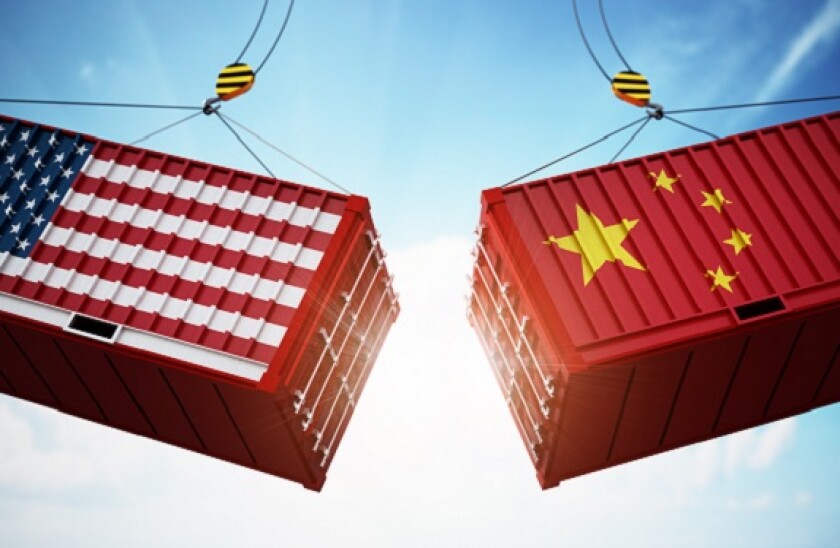China has become the latest country to join an initiative by Singapore and New Zealand to maintain open supply chains amid the Covid-19 pandemic, according to a Thursday press release by the Ministry of Trade and Industry of Singapore. The other nations signed up to the initiative are Australia, Brunei, Canada, Chile, Laos, Myanmar, Nauru, the United Arab Emirates and Uruguay.
These countries have released a joint statement, affirming “the importance of refraining from the imposition of export controls or tariffs and non-tariff barriers” and promising to work together to “identify and address trade disruptions”. The statement did not go into further detail.
*
US president Donald Trump has once again criticised China for Covid-19, as domestic infections in the US spiked.
“As I watch the Pandemic spread its ugly face all across the world, including the tremendous damage it has done to the USA, I become more and more angry at China,” he tweeted on Tuesday US time. “People can see it, and I can feel it!”
*
The Standing Committee of the National People's Congress passed the national security law for the Hong Kong Special Administrative Region on Tuesday, with all 162 votes in favour.
The US Department of Commerce said in a statement on Monday local time that it has revoked Hong Kong’s special trade status, as the imposition of the new security measures will undermine the city’s autonomy. Hong Kong will no longer receive preferential treatment compared to the Mainland, including the availability of export licence exceptions, it added.
*
China will restrict the visas for US officials that “behaved badly” on Hong Kong-related issues, said Zhao Lijian, spokesperson for the Ministry of Foreign Affairs, at a press briefing on Monday. The statement came after the US announced similar measures for Chinese officials last week.
*
Meanwhile, the media war between the two countries continues.
Zhao said at a Wednesday briefing that China has ordered Associated Press, CBS, National Public Radio and United Press International to submit information about their China-based staff members, as well as their financials, operations and properties.
The country requested same information from the New York Times, the Wall Street Journal, the Washington Post, the Voice of America and Time magazine earlier this year.
Zhao said the measures were payback to US Department of State’s earlier move to label a total of nine Chinese media outlets as “foreign missions”.
*
The US Federal Communications Commission (FCC) has designated Huawei Technologies and ZTE Corp as national security threats, saying the two firms could undermine the integrity of the country’s communications networks and communications supply chain.
“This decision means that funds from the FCC’s Universal Service Fund cannot be used to purchase, obtain, maintain, improve, modify, or otherwise support any equipment or services provided by Huawei or ZTE,” the FCC said in a statement.
Zhao at the Chinese foreign ministry said on Wednesday that these are charges without any evidence, and that the US is abusing the state power and suppressing specific countries and specific companies. He called it “economic bullying”.
*
India announced a ban on WeChat and TikTok alongside 57 other Chinese apps, which it deemed to be “prejudicial to sovereignty and integrity of India, defence of India, security of state and public order”, according to a statement by the country’s Ministry of Electronics & Information Technology.
The ministry said many complaints were made from various sources that the apps were “stealing and surreptitiously transmitting users' data in an unauthorised manner”.
China’s Zhao, spokesperson for the foreign ministry, said that any damage to the cooperation between the two countries is “not in India’s interest”.
The Ministry of Commerce of China’s spokesperson Gao Feng said in a Thursday press briefing that the country has not taken any restrictive and discriminatory measures against Indian products and services.
*
United Airlines has joined its American peer Delta Air Lines in resuming flights between China and the US. Starting July 8, United will operate twice-weekly flights between San Francisco and Shanghai, via Seoul's Incheon International Airport.

